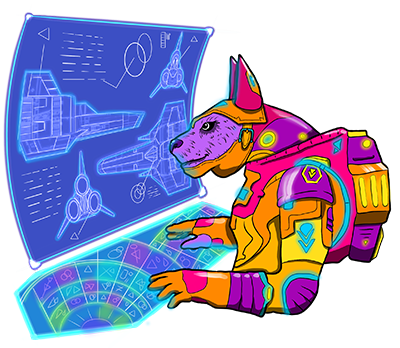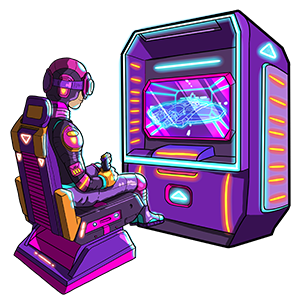Outsourcing Quality Assurance (QA) can be a game-changer for your development process, particularly in Localization QA (LQA). A successful outsourcing partnership hinges on clear communication and seamless integration with your existing team. Here are some key steps and considerations to ensure a smooth and effective collaboration.
Making an Educated Choice
Understanding the various types of QA testing is essential not only for achieving a high-quality gaming experience but also for knowing what to look for in a QA partner. The three main types of QA include Functional Testing, which identifies and reports bugs by meticulously following a test plan; Compliance Testing, which ensures the game meets the technical requirements for each platform; and Localization Testing (Linguistic QA), which checks translations in localized versions to corroborate cultural and linguistic accuracy.
Now that you’re familiar with these QA types, the next step would be to ask for references and recommendations from other companies in your network. Look for QA teams with a proven track record and positive feedback from colleagues. This initial research will help you identify potential partners who have already demonstrated their capabilities in similar projects.
Key Questions to Ask Before Starting a Partnership
When interviewing potential QA partners, consider asking the following questions to gauge their suitability:

- Timeline Estimation: Can they estimate the time required to test the game? Do they cover all types of testing?
- Gameplay Evaluation: Will they conduct a free gameplay evaluation to help prepare a budget? How do they handle feedback and implement necessary changes?
- Cost Calculation: How are testing costs calculated? Is it hourly, daily, or based on another metric?
- Test Plan Creation: Can they create a test plan for you if you don’t have one? What information would they need to do so?
- Language Coverage: What languages do they offer, and to what extent? Besides translation and editing, do they offer cultural assessment or other related services?
By asking these questions, you can make an informed decision and select a QA partner that will contribute to the success of your game.
Keeping Everyone on the Same Page
Effective communication is the backbone of any successful outsourcing partnership. So, establish clear communication channels from the start. Regular updates, progress reports, and direct access to the QA team can prevent misunderstandings and address any issues promptly.
Using collaborative agile tools and platforms like Trello for task management, Jira for bug tracking, and Slack for communication can help this process. Both parties need to have a shared understanding of the testing pipeline and deliverables. This includes timelines, quality standards, and specific responsibilities. Setting clear expectations from the outset helps to certify that both teams are aligned and working towards the same goals.
Building Teamwork through Integration and Collaboration
The outsourced team should act as an extension of your own. Encourage collaboration between your internal development team and the external QA team through joint meetings, shared documents, and collaborative platforms. Moreover, integration fosters a sense of teamwork and helps the outsourced team better understand your project’s nuances.

Discuss the tools and platforms that will be used for bug tracking and communication. Corroborate compatibility and ease of use for both teams. Making sure these tools are in place and understood by both parties can streamline the workflow and improve efficiency.
Ensuring Flexible QA Support
Choose a QA partner that can scale their efforts based on your needs. Flexibility is crucial, whether ramping up for a significant release or scaling down post-launch. It’s also key when adapting to new needs, like adding more languages, handling seasonal campaigns, or localizing press releases. A good QA partner should be able to adjust their resources to match your project’s demands, guaranteeing that you always have the right level of support.
The Takeaway
Outsourcing QA, especially Localization QA, requires careful planning and clear communication. By conducting thorough research, asking the right questions, and setting clear expectations, you can establish a successful partnership that enhances your project’s quality.
Remember, effective communication, proper integration, and flexibility are essential components of a successful outsourcing strategy. With these elements in place, you can confidently navigate the complexities of LQA and deliver a polished, immersive gaming experience to players worldwide.
